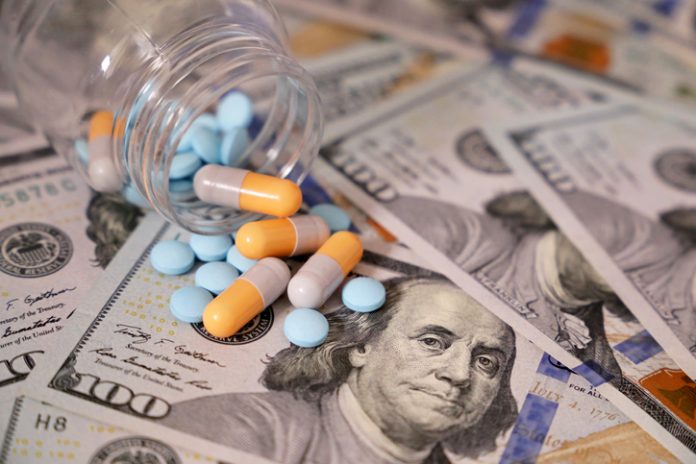Capitol Hill Democrats are preparing to use what may be the final months of the nation’s struggle with COVID-19 to pursue a larger government role in controlling prescription drug prices.
Emboldened by their control of Congress and the White House, Democrats are trying to allow the federal government to negotiate directly with pharmaceutical companies. How such an action could get past a closely divided U.S. Senate remains to be seen.
If Senate Democrats are not successful in doing away with the legislative filibuster, the one remaining option for them to achieve drug company negotiating would be through budget reconciliation, a process under which bills, under certain circumstances, can be passed with a simple majority of 51 votes. Budget reconciliation was used to pass this year’s $1.9 trillion stimulus bill and was employed by Senate Republicans in December 2017 to enact the Trump administration’s tax cuts. Under Senate rules, budget reconciliation can be used only once during a calendar year, meaning the earliest Democrats could apply it to prescription drug prices is 2022.
Still, such a long path may be necessary, because direct negotiations between the government and drug companies over prescription drug prices are opposed by the pharmaceutical industry, with their legions of lobbyists, and by Republicans.
Big Pharma’s Biggest Customer
As The Hill (Feb. 21) reported, Democrats may resuscitate H.R. 3, a bill that passed the House last year but was not taken up by the then-GOP-controlled Senate. H.R. 3 would have allowed the federal government to negotiate with pharmaceutical companies for lower prices on 50 to 250 brand-name drugs covered by Medicare. Medicare accounts for about one-third of the prescription drug market.
Once such an arrangement was in place, it could later, through separate legislation, be expanded to cover non-Medicare recipients. Although GOP lawmakers remain opposed to having the government set drug prices, it was the Republican-controlled Congress in 2003 that created Medicare Part D, which covers some of the costs of prescription drugs.
The Congressional Budget Office (CBO) estimated that last year’s bill would save the government $456 billion over ten years, but that it would also lead to 40 fewer newer drugs coming to market.
Appealing Political Target
Combatting high drug prices has an obvious political appeal, one that will enable Democrats to make Big Pharma the boogeyman. Rising list prices for brand-name drugs are a hot-button political issue, along with insurance plans that have repeatedly raised deductibles, resulting in higher out-of-pocket costs for consumers.
During the 2016 presidential campaign, Donald Trump supported allowing the government to negotiate prescription drug prices with pharmaceutical manufacturers. But congressional Republicans refused to go along with the idea, arguing that it would force drug-makers to cut back on research and development, depriving the public of life-saving medicines. Furthermore, because Medicare buys drugs in bulk, allowing the program to negotiate with pharmaceutical companies would let the government set prices for insurers. This could be a step down the path to price controls, which, as the CBO indicated, could lead to drug shortages.
“There are many things the government can do to lower drug prices, including approving new drugs more quickly, moving drugs to over-the-counter status more quickly, and allowing pharmacists to dispense them,” says John Goodman, president of the Goodman Center for Public Policy Research and co-publisher of Health Care News. “In each case, deregulating and freeing the private sector is key. More government involvement, including negotiating prices with drug companies, would be a step in the wrong direction.”
“Medicare-for-All” Surfaces in the House
Complicating the debate over prescription drug prices is a push by progressive House Democrats for the adoption of a Medicare-for-all (single-payer) system. Rep. Pramila Jayapal (D-Wash.), the chair of the Congressional Progressive Caucus, is one of the lead authors of a bill that would replace today’s fragmented health insurance system with a single-payer plan. The bill currently has 109 co-sponsors, about half of what it needs for passage in the House.
Jayapal and her allies argue that the COVID-19 pandemic has shown the inadequacies of the current arrangement and that it is now time to put a Medicare-for-all system in place. At this point, however, there is little indication that either President Joe Biden or House Speaker Nancy Pelosi is willing to expend political capital supporting such a drastic move.
During his campaign, Biden supported a Medicare-like public option and lowering the age for Medicare eligibility, though the White House has not yet sent corresponding proposals to Congress. Speaker Pelosi, working with a thin majority, has shown no willingness to back Jayapal and her allies.
For the time being, Democrats may be content to pursue the prescription drug option, along with either legislative or regulatory expansions of the Affordable Care Act/Obamacare.
Bonner R. Cohen, Ph.D., (bcohen@nationalcenter.org) is a senior fellow at the National Center for Public Policy Research.




















